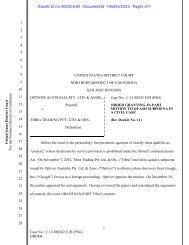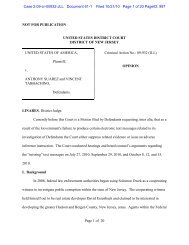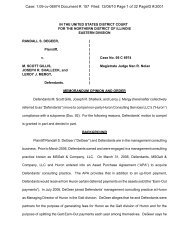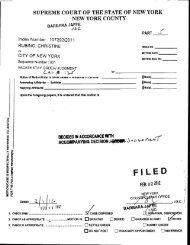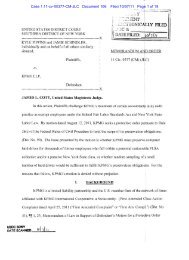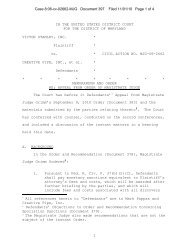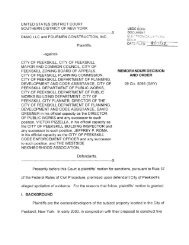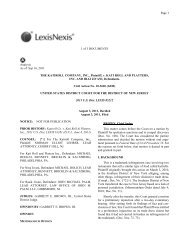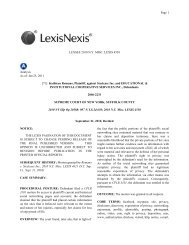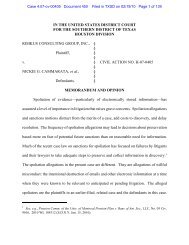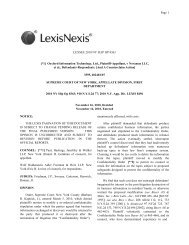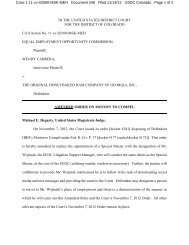SANCTIONS FOR E-DISCOVERY VIOLATIONS: BY THE NUMBERS
SANCTIONS FOR E-DISCOVERY VIOLATIONS: BY THE NUMBERS
SANCTIONS FOR E-DISCOVERY VIOLATIONS: BY THE NUMBERS
You also want an ePaper? Increase the reach of your titles
YUMPU automatically turns print PDFs into web optimized ePapers that Google loves.
828 DUKE LAW JOURNAL [Vol. 60:789<br />
In summary, the safe harbor was intended to provide limited<br />
protection, and it has. Parties or counsel seeking refuge from the<br />
increasing sanction-motion practice will be able to reach Rule 37(e)’s<br />
refuge only in very limited situations. Since the rule’s adoption,<br />
approximately two cases per year have met its requirements.<br />
CONCLUSION<br />
Sanction motions and sanction awards for e-discovery violations<br />
have been trending ever-upward for the last ten years and have now<br />
reached historic highs. At the same time, the frequency of sanctions<br />
against counsel for e-discovery violations, though small in number, is<br />
also increasing. Although serious e-discovery misconduct by parties<br />
and counsel should continue to be the subject of sanctions,<br />
appropriate consideration should be given to the complexity of e-<br />
discovery in ruling upon the increasingly frequent e-discovery<br />
sanction motion.<br />
were requested by the defendant and holding that the Rule 37(e) safe harbor was “inapplicable<br />
under these facts because the conduct giving rise to this action was not in violation of any<br />
discovery order governed by Rule 37”).<br />
169. In re Intel Corp. Microprocessor Antitrust Litig., 258 F.R.D. 280, 282 n.5 (D. Del. 2008)<br />
(refusing to apply the Rule 37(f) safe harbor even though it was cited by the defendants in a<br />
letter to the court describing its email system’s auto-delete function ); Orrell v. Motorcarparts of<br />
Am., Inc., No. 3:06CV418-R, 2007 WL 4287750, at *7 (W.D.N.C. Dec. 5, 2007) (ordering, in an<br />
employment case, that the plaintiff, who had “wiped” her laptop and was found to have served<br />
deficient discovery responses, serve complete responses and provide her home computer to<br />
defendants for forensic examination, and citing Rule 37(e), even though sanctions were neither<br />
sought nor awarded); Disability Rights Council v. Wash. Metro. Transit Auth., 242 F.R.D. 139,<br />
146 (D.D.C. 2007) (holding that Rule 37(e) was inapplicable because no sanctions were sought<br />
and because of the “indefensible” failure to disable “auto-delete” during the course of<br />
litigation).



